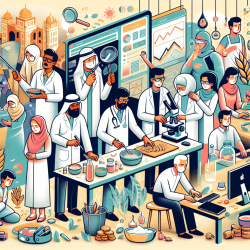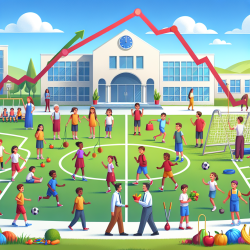The COVID-19 pandemic has left an indelible mark on various sectors worldwide, including the food industry. As practitioners in the field of health and safety, understanding the socioeconomic impacts of this pandemic on foodborne illnesses is crucial. The research article "Socioeconomic impacts of COVID-19 pandemic on foodborne illnesses in the United States" provides valuable insights that can help practitioners improve their skills and encourage further research.
The Impact of COVID-19 on Foodborne Illnesses
The study highlights a significant decline in foodborne diseases during the pandemic, with incidences dropping between 25% and 60% across various states. This decline is attributed to several factors, including changes in policies, environmental conditions, and consumer behavior.
Key Findings
- Geographical Variation: States like California showed the highest rates of foodborne diseases pre-pandemic but experienced a significant decline during 2020.
- Pathogen Prevalence: Campylobacter and Salmonella were the most reported pathogens. However, their incidences decreased significantly during the pandemic.
- Behavioral Changes: Increased handwashing and reduced dining out contributed to lower transmission rates of foodborne pathogens.
Applying Research Insights in Practice
Practitioners can leverage these findings to enhance their approach to managing food safety. Here are some actionable steps:
1. Emphasize Hygiene Practices
The pandemic has underscored the importance of hygiene in preventing disease transmission. Practitioners should continue to promote rigorous hygiene practices among food handlers and consumers.
2. Advocate for Policy Implementation
The study shows that strict policies contributed to the decline in foodborne illnesses. Practitioners should advocate for policies that enforce safety standards in food production and handling.
3. Encourage Further Research
The findings open avenues for further research into the long-term effects of behavioral changes on food safety. Practitioners can collaborate with researchers to explore these areas and develop innovative solutions.
The Role of Online Therapy Services
TinyEYE's online therapy services can play a pivotal role in supporting practitioners by providing resources and training on best practices for managing food safety during pandemics. By leveraging technology, practitioners can stay informed and equipped to handle emerging challenges.
Conclusion
The COVID-19 pandemic has reshaped our understanding of foodborne illnesses and their management. By implementing the insights from this research, practitioners can enhance their skills and contribute to a safer food environment. Continued research is essential to adapt to evolving challenges and ensure public health safety.
To read the original research paper, please follow this link: Socioeconomic impacts of COVID-19 pandemic on foodborne illnesses in the United States.










